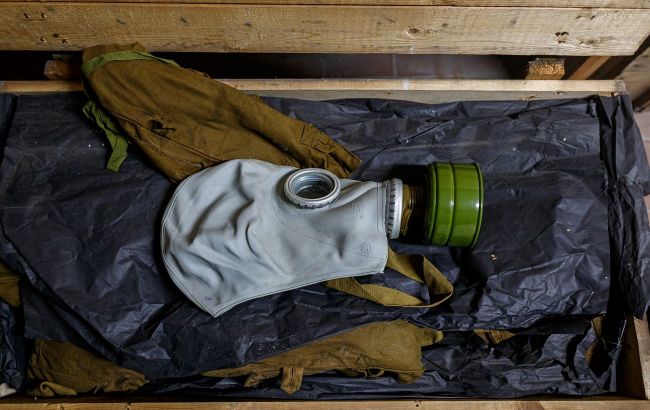Russians employ chemical weapons in Ukraine during assaults on Tavria front
 Russians drop K-51 grenades with chloropicrin on the Ukrainian Armed Forces in the Tavria direction (Getty Images)
Russians drop K-51 grenades with chloropicrin on the Ukrainian Armed Forces in the Tavria direction (Getty Images)
The Russian military is allegedly using K-51 grenades with chloropicrin at the front. This is a banned chemical weapon that can lead to deaths, according to Oleksandr Tarnavskyi, commander of the Tavria Operational and Strategic Group of troops.
Over the past 24 hours, Russians dropped ammunition with tear gas and a suffocating chemical agent, chlorpicrin, at least 6 times from drones. Probably, they dropped K-51 grenades.
"So far this week, about a dozen enemy attempts to attack with poisonous substances have been recorded," Tarnavskyi writes.
Despite these Russian attacks, the Ukrainian military continues to hold the line.
What is chloropicrin?
It is a chemical that is either colorless or a pale yellow oily liquid with a pungent odor. It was discovered in 1848 by Scottish chemist John Stenhouse.
Its boiling point is 112 degrees, and it is poorly soluble in water. Chloropicrin causes severe inflammation of the eyes, throat, nose, and respiratory tract and quickly deprives a person of combat capability. In high concentrations, it can lead to death, poisoning soldiers' water and food.
Use of chemical weapons by Russian Federation against Ukraine
The Ukrainian military reported an increase in the use of chemical munitions by Russian invaders. Up to 10 cases of chemical use are recorded daily.
The military has already recorded 626 cases of Russia's use of ammunition equipped with toxic chemicals. Of these, 51 cases were recorded in January of this year alone.
Officials in the administration of U.S. President Joe Biden have warned of the risk of Russia using chemical weapons in Ukraine. The White House is concerned that the Russians will take such a desperate step in the event of new failures at the front.

